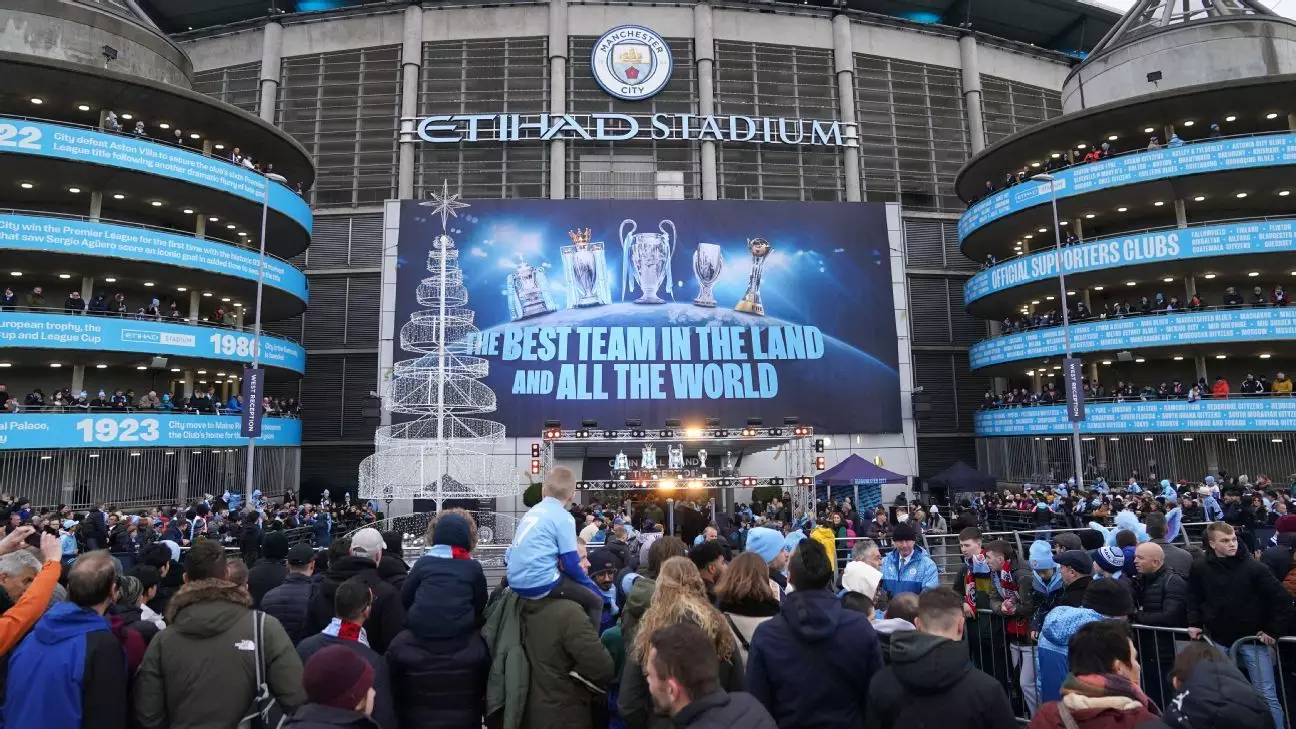The long-awaited independent hearing regarding Manchester City’s alleged violations of Premier League financial regulations is set to commence on Monday. This significant event, labeled by British media as the “sports trial of the century,” is anticipated to last around ten weeks, during which a three-member commission will evaluate an extensive body of evidence. The outcome of the hearing is expected before the current season concludes. This investigation is particularly critical, as it pertains to allegations that span from 2009 to 2018—years in which City enjoyed substantial success, winning multiple trophies and solidifying their status within competitive football.
As one of the most successful clubs in England’s football history—with eight Premier League titles, a Champions League victory, several domestic cups, and the FIFA Club World Cup under their belt—Manchester City’s reputation hangs in the balance. Accusations of financial misconduct could lead to severe repercussions, including hefty fines, points deductions, or even relegation from the prestigious Premier League. Such outcomes would not only tarnish the club’s achievements but also reshape the narratives surrounding modern football finance.
Manchester City has consistently refuted all allegations of wrongdoing, and in a recent press conference, manager Pep Guardiola expressed optimism regarding the hearing’s start. He emphasized the principle of presumption of innocence—noting that City shall remain innocent until proven guilty. Guardiola’s comments hint at a sense of confidence within the club’s ranks as they brace for what could be tumultuous times ahead. He remarked, “I know what people are looking forward to,” underscoring the high stakes involved, not just for the club but also for the broader football community absorbed in the unfolding story.
City’s defense is likely grounded in arguments positing compliance with both Premier League and UEFA regulations, particularly with regard to their previous experience facing similar allegations. Back in 2020, UEFA had banned City from the Champions League for overstating sponsorship income, but the club successfully overturned that ruling at the Court of Arbitration for Sport. This has now paved the way for a new front in their struggle against perceived unfair treatment, as they prepare yet again to safeguard their reputation and defend their financial practices.
The heart of the allegations revolves around multiple breaches: City reportedly failed to provide accurate financial information, overlooked complete disclosure regarding player and managerial remuneration, and did not fully cooperate with ongoing investigations. Collectively, these infractions could severely undermine not just Manchester City’s operations, but more importantly, the integrity of the Premier League at large. The sheer volume of accusations suggests a complicated legal landscape that the commission will explore in depth during the proceedings.
Interestingly, the outcomes of similar cases in the league will loom large over these hearings. Just last season, clubs like Everton and Nottingham Forest faced points deductions for breaching financial regulations, while Leicester City successfully appealed against similar penalties, alluding to a landscape where varying interpretations of “breach” can lead to immensely different consequences.
The implications of this independent hearing extend beyond Manchester City itself. As the Premier League garners more attention both domestically and internationally, the series of events surrounding the club’s finances may set crucial precedents for financial governance in football. Should City face severe penalties, it could establish a pattern—one that greatly shapes how other clubs operate financially while maintaining the delicate balance between competition, ethics, and sustainability.
Furthermore, the timing of this hearing, coinciding with City’s pursuit of a fifth consecutive league title, adds another layer of complexity. As they compete on the pitch, the shadow of the hearing will be an ever-present backdrop, potentially influencing player performance and fan sentiment. The ongoing saga is likely to dissect the multifaceted nature of elite football, where ambition often meets the stringent demands of regulation and oversight.
As the independent hearing unfolds and findings emerge, the most significant question remains: How will this trial transform the landscape of the Premier League and impact Manchester City’s future? Football fans and pundits alike watch with bated breath, ready to witness the reverberations of this pivotal moment in sports history.

